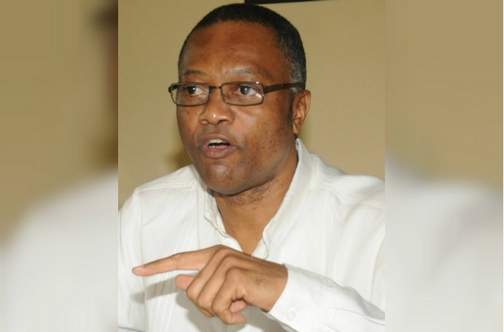Co-chair of the Public Sector Transformation Oversight Committee Danny Roberts is arguing that the focus on reducing the ratio of wages paid to public sector workers to nine per cent of Gross Domestic Product (GDP) is not likely to engender the kind of enthusiasm, commitment and focus among workers that is essential for the transition phase of the transformation process.
“What we need to focus on is not the numerator, that is the nine per cent of the wage bill, but the denominator, that is, pushing the GDP to higher levels so that the nominal amount available for public sector wages would be greater, and the new narrative must be built ultimately around an expanded economy and opportunities for better social and economic outcomes to satisfy the question: what is in it for me?” Roberts said.
The veteran trade unionist was speaking at the recent Jamaica Business Development Corporation Employee Engagement Conference held under the theme: ‘Public Sector Transformation through Employee Engagement’.
Arguing that a more robust and sustainable economic growth revolves around the quality of Jamaica’s public institutions, Roberts urged the Government to adopt an even greater resolve in the post-International Monetary Fund (IMF) period for public sector transformation to be embedded in the operations of State; form an integral part of Government’s strategic plan; become central to the operational plan of each ministry; and given no less emphasis on good governance than that given under the IMF programme.
According to Roberts, reform of the public sector must begin with the articulation of a core purpose and strategic narrative that employees can understand and buy into. He said that in addition to providing effective quality service and good governance to Jamaica’s citizens, the reform must be seen as part of the attempt at reducing corruption, overcoming the monster of criminality, and fostering an environment that brings about sustainable economic growth and equitable social outcomes.
Roberts argued that the last 20 years have seen a debate around the new public management paradigm and its emphasis on the rationalisation of public bodies to accountability for performance, privatisation, democratisation and citizen participation, customer focus, performance management, separation of politics and administration and changed management style.
He added that employee engagement must represent the fulcrum of the public sector transformation process as “the employees must understand the purpose of the change, the reason for making the change, create a mental picture of what the likely outcome arising from the change will be, and [have] a clear step-by-step plan to get to where they need to go”, so they can participate and make a positive contribution.
http://www.jamaicaobserver.com/news/roberts-urges-change-of-focus-on-public-sector-wage-bill_149291




Leave A Comment